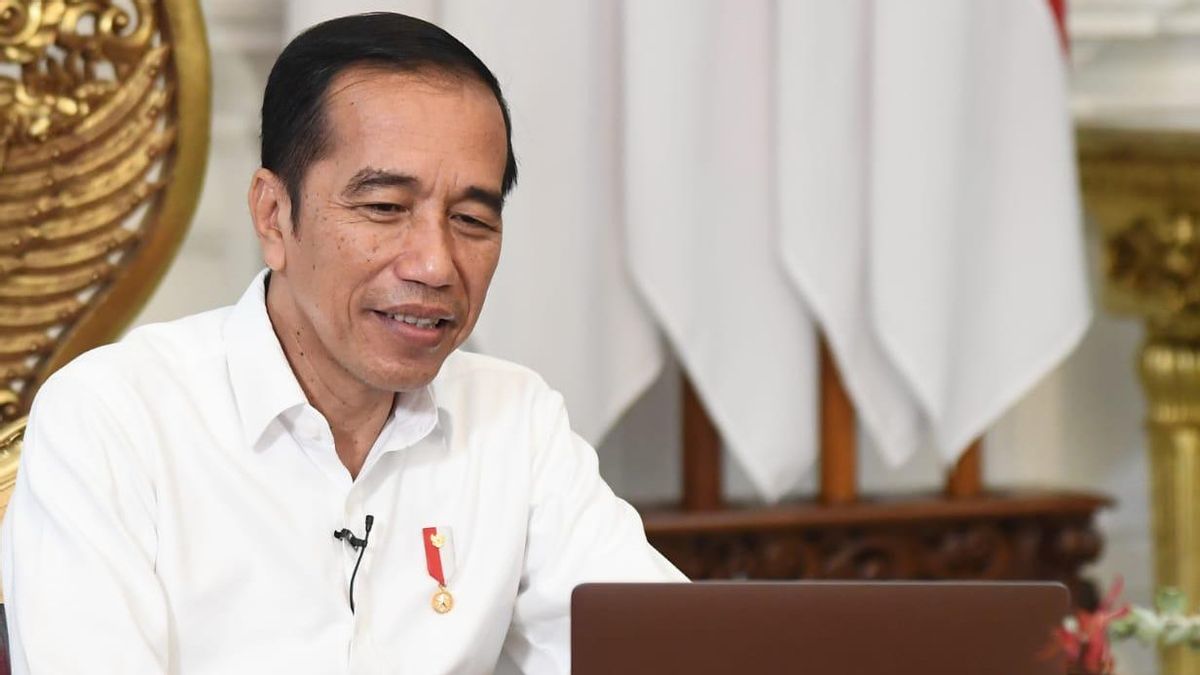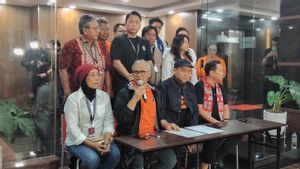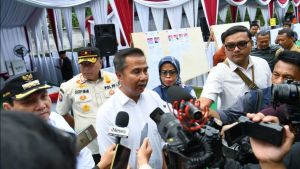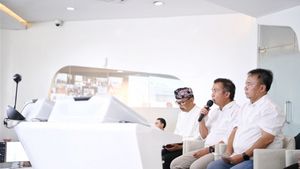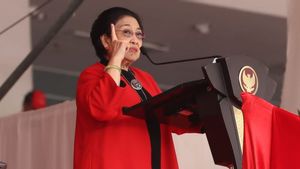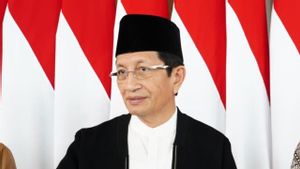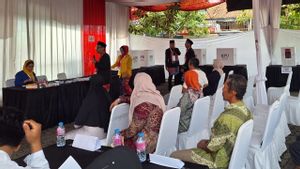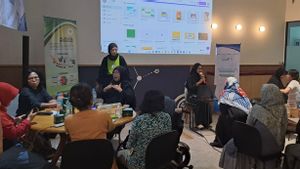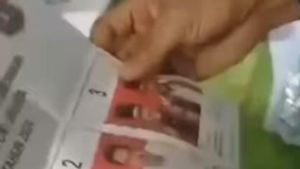JAKARTA - The post-response handling of COVID-19 is being taken into account. Because, when there are no more patients who have contracted the corona virus and a country has been declared cured, there is economic paralysis that remains.
Therefore, President Joko Widodo described five schemes which are used as a stance for economic recovery in Indonesia. Especially, the recovery and protection of micro, small and medium enterprises (MSMEs).
"There are five major schemes in the protection and economic recovery program, especially in the micro, small, and medium enterprises sector. Including, special programs for micro and ultra-micro businesses that have so far been out of touch and are not accessible to financial institutions and banks," Jokowi said in a speech. broadcast on the Youtube account of the Presidential Secretariat, Wednesday, April 29.
First, there is a social assistance program scheme for MSME actors who are categorized as poor and vulnerable to poverty due to COVID-19. Jokowi asked his staff to ensure that they were included in the recipient of social assistance, both in the form of family hope programs, food packages, cash assistance, village fund BLT, exemption from electricity tariff reduction, and pre-employment cards.
The second scheme is tax incentives for MSME players whose turnover is below Rp. 4.8 billion per year from April to September 2020. "Here the government has lowered the final income tax for MSMEs from 0.5 to 0 percent over a period of 6 months," said Jokowi. .
The third scheme is relaxation and restructuring of MSME loans with various programs. The program is the postponement of installments and interest subsidies for the recipients of People's Business Credit (KUR), such as Ultra Micro Financing (UMi) and PNM Mekaar.
In addition, there is a delay in installments and subsidies which are also aimed at micro businesses that receive credit from the Revolving Fund Management Institution (LPDB) and recipients of capital from several ministries.
"I see that there are a lot of LPM UKP (Marine and Fisheries Business Capital Management Institution), BLU Forest Management Financing Center and prospective farmer locations in the Ministry of Agriculture. I also ask that the postponement program of installments and interest subsidies be extended to micro businesses receiving business assistance from the local government. , "said Jokowi.
The fourth scheme is the expansion of financing for MSMEs in the form of a stimulus for working capital assistance. Jokowi said that assistance must be designed properly so that MSMEs experience such an emergency program.
Jokowi explained, there are 41 million MSMEs that have been connected to financial and banking institutions. However, apart from that, there are 23 million MSMEs that have never received financing from financial institutions or the banking system.
"For those who are bankable, the distribution will be through the expansion of the KUR program at the same time this will encourage financial inclusion. Meanwhile, for those who are not bankable, the distribution can be through UMi through Mekaar or other program schemes," he explained.
The fifth scheme is to oblige ministries, institutions, state-owned enterprises and local governments to become a support in the MSME business ecosystem, especially in the early stages of recovery.
For example, said Jokowi, BUMN or BUMD could become the takers of the results or production of MSME players in the fields of agriculture, fisheries, culinary, to home industries.

"Apart from that, the reallocation of regional government budgets must also be directed at the economic stimulus program that touches the UMKM sector. I hope that the Minister of Home Affairs can convey this to the Regional Heads so that we hope that our MSMEs can survive in the midst of this COVID-19 pandemic," Jokowi concluded.
However, the Economist of the Institute for Development of Economics and Finance (Indef) Bhima Yudhistira said that the former mayor of Solo is questioning its success.
The reason is, said Bhima, credit relaxation which only relies on MSME credit facilities under ministries and institutions including KUR, is less effective. The total KUR 2019 amounted to IDR 129.5 trillion, while the total MSME credit at commercial banks in 2019 reached IDR 1,150 trillion.
"So the KUR portion of the total UMKM credit is only 11.2 percent, that's very small," he explained to VOI.
According to Bhima, the government must involve OJK and BI so that credit relaxation can be comprehensive to all commercial banks and BPRs.
"Then, the obligation of the local government to support the UMKM must be clear. The policy is like what. Do not confuse the technical level below," said Bhima.
Another Indef economist, Enny Sri Hartati, considers that all policies in the midst of the COVID-19 pandemic are actually schematically adequate. However, the problem is, the plans that have been discussed are sometimes not as beautiful as their implementation.
"The existing scheme is actually late. Therefore, the government must be able to focus so that all assistance planned can be right on target," he explained.
The English, Chinese, Japanese, Arabic, and French versions are automatically generated by the AI. So there may still be inaccuracies in translating, please always see Indonesian as our main language. (system supported by DigitalSiber.id)
